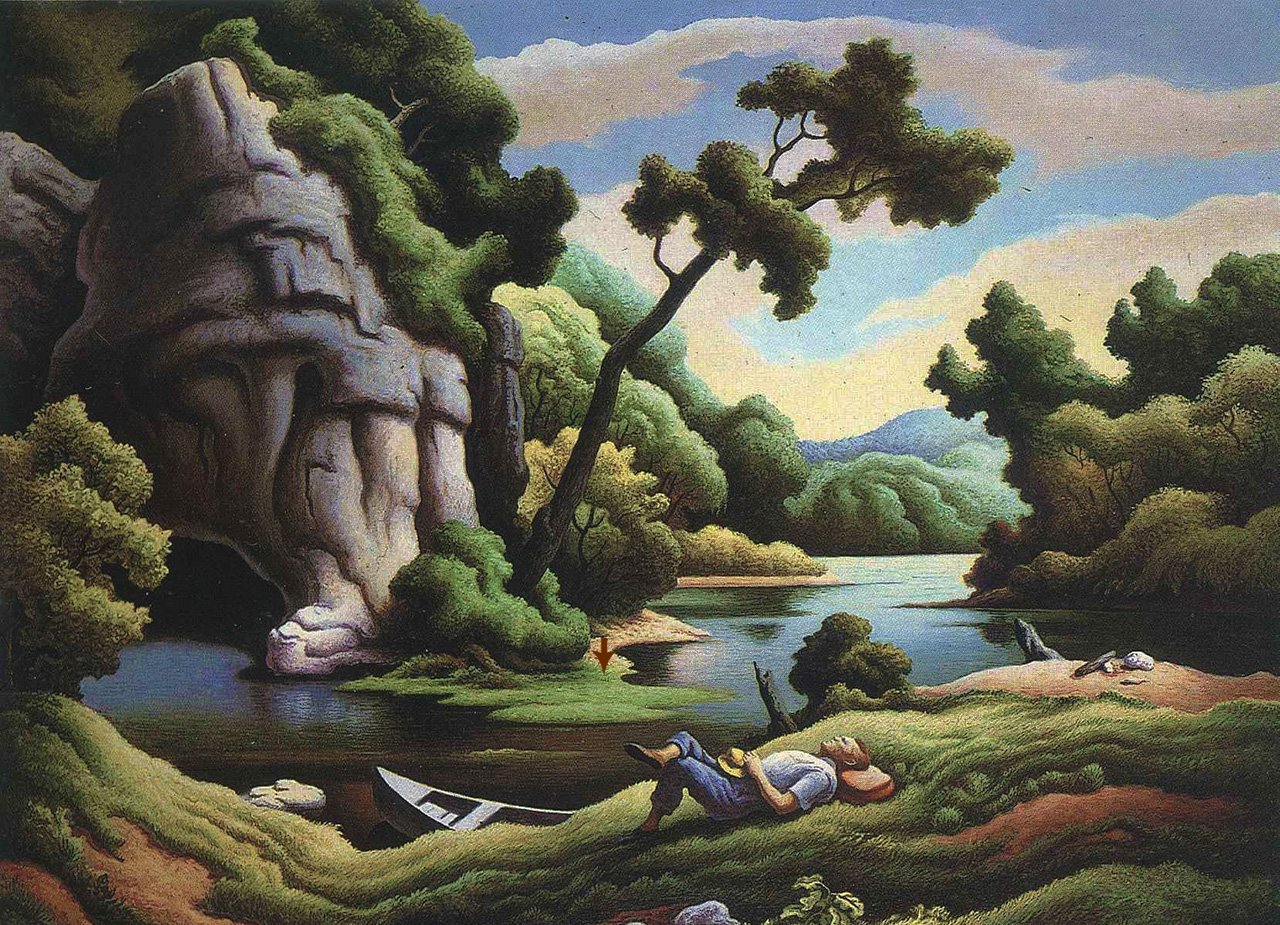
ESSAYS
Thomas Hart Benton, Cave Spring

Magic and the Machine
A hallmark of the puzzling era we’re now living through is a remarkable juxtaposition of two apparently contrary trends. In many social circles, there exists a buoyant sense of possibility, an upbeat and expectant optimism with regard to the near and long-term future. Yet in other societal spheres, a spreading despondency weighs folks down whenever they contemplate our collective future, an overwhelming hopelessness that interferes with their ability to even envision a livable future a generation or two from now.

Foreword for Joanna Macy: A Wild Love for the World
In the early 1980s I was driving along a poorly paved road in the outer suburbs of New York City, my right hand fiddling with the radio dial in hopes of finding some decent songs to listen to. As the sound skidded from station to station – between the white fuzz of static and intermittent snatches of innocuous, overproduced music – I abruptly heard a clear and curious voice, not exactly singing, but definitely singsong, lilting up and down. I stopped turning the dial and just listened. At a brief station break, the woman being interviewed was identified as Joanna Macy, a Buddhist scholar and activist. And then there was that unusual voice again, breathy, with a slightly nasal twang, saying something astonishingly simple…

Making Magic
They told me I had powers.
Powers? I had been a magician for seven years, performing steadily back in the States, entertaining in clubs and restaurants throughout the country, yet I had never heard anyone mention powers. To be sure, once or twice a season I was rebuked by some spectator fresh out of Bible school for “doing the work of Satan,” but the more customary refrain was: “How did you do that?” Every evening in the clubs: “How? How did that happen?” “C’mon tell us — how does that work?”

The Perceptual Implications of Gaia
The Gaia hypothesis represents a unique moment in scientific thought: the first glimpse, from within the domain of pure and precise science, that this planet might best be described as a coherent, living entity. The hypothesis itself arose in an attempt to make sense of certain anomalous aspects of the Earth’s atmosphere. It suggests that the actual stability of the atmosphere, given a chemical composition very far from equilibrium, can best be understood by assuming that the atmosphere is actively and sensitively maintained by the animals, plants, oceans, and soils all acting collectively, as a vast, planetary metabolism.

Animism, Perception, and Earthly Craft of the Magician
Although the term “animism” was originally coined in the nineteenth century to designate the mistaken projection of humanlike attributes — such as life, mind, intelligence — to nonhuman and ostensibly inanimate phenomena, it is clear that this first meaning was itself rooted in a misapprehension, by Western scholars, of the perceptual experience of indigenous, oral peoples. Twentieth-century research into the phenomenology of perception revealed that humans never directly experience any phenomenon as definitively inert or inanimate.





